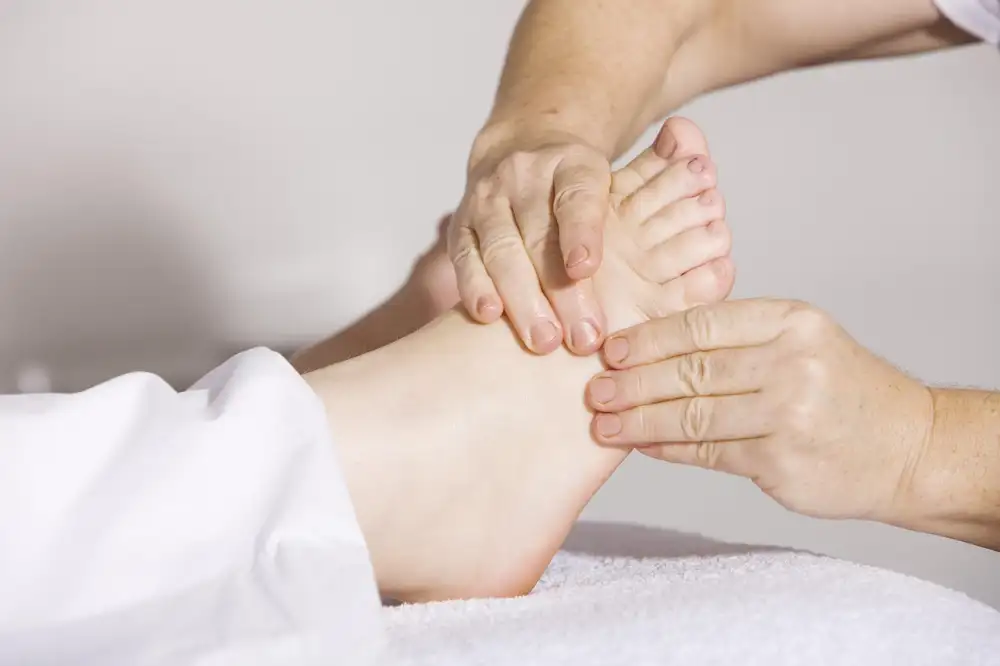Harnessing the Power of Hypnosis: Exploring the Potential of Hypnotherapy for Misophonia Relief

- Understanding the concept of hypnosis as a therapeutic approach
- Exploring the potential benefits of hypnosis for misophonia sufferers
- Examining scientific studies and research on hypnosis for misophonia
- Discussing the role of hypnotherapy in managing misophonia symptoms
- Highlighting the limitations and considerations of using hypnosis for misophonia
- Exploring alternative treatment options for misophonia
Misophonia, a relatively lesser-known condition, is characterized by an extreme sensitivity to specific sounds, often referred to as "trigger sounds." These trigger sounds can range from chewing, breathing, or even repetitive tapping. For individuals with misophonia, these seemingly ordinary sounds can evoke intense emotional and physiological responses such as anger, anxiety, or even panic.
The impact of misophonia on one's health cannot be underestimated. The constant exposure to trigger sounds can lead to chronic stress, sleep disturbances, and impaired concentration. It can also strain personal relationships and hinder daily functioning. As the understanding of misophonia grows, researchers are exploring various therapeutic approaches to alleviate its debilitating effects on individuals' well-being.
Understanding the concept of hypnosis as a therapeutic approach
Understanding the concept of hypnosis as a therapeutic approach is essential in exploring its potential for misophonia relief. Hypnosis is a state of focused attention and heightened suggestibility, where individuals are more receptive to positive suggestions and can access their subconscious mind. It involves inducing a trance-like state through relaxation techniques, allowing the therapist to guide the individual towards desired behavioral changes. This therapeutic approach aims to reframe negative thoughts and emotions associated with misophonia, helping sufferers develop coping mechanisms and reduce their sensitivity to trigger sounds.
| Feature | Hypnosis for Misophonia | Traditional Therapy for Misophonia |
|---|---|---|
| Mechanism | Addresses subconscious triggers and responses | Focuses on cognitive and behavioral techniques |
| Customization | Highly customizable to individual triggers and experiences | Can be tailored to some extent, but often follows standardized protocols |
Exploring the potential benefits of hypnosis for misophonia sufferers
Exploring the potential benefits of hypnosis for misophonia sufferers, research suggests that hypnotherapy may offer relief from the distressing symptoms associated with this condition. Hypnosis can help individuals develop coping mechanisms and reduce their sensitivity to trigger sounds. By accessing the subconscious mind, hypnosis aims to reframe negative associations and replace them with more positive responses. This approach has shown promise in reducing anxiety, stress, and irritability related to misophonia. While further studies are needed, early evidence indicates that hypnosis may be a valuable tool in managing misophonia symptoms.

Examining scientific studies and research on hypnosis for misophonia
Scientific studies and research on hypnosis for misophonia have shown promising results. A study published in the Journal of Clinical Psychology found that hypnotherapy significantly reduced misophonia symptoms in participants. Another study conducted at the University of Amsterdam found that hypnosis led to a decrease in emotional distress and physiological arousal associated with trigger sounds. These findings suggest that hypnosis may be an effective tool for managing misophonia symptoms. However, more research is needed to fully understand the long-term effects and potential benefits of hypnosis for misophonia relief.
Discussing the role of hypnotherapy in managing misophonia symptoms
Hypnotherapy has shown promise in managing misophonia symptoms by addressing the underlying psychological factors contributing to the condition. By inducing a state of deep relaxation and heightened focus, hypnosis allows individuals to gain control over their emotional responses to trigger sounds. Through guided imagery and suggestion, hypnotherapy aims to reframe negative associations with specific sounds, replacing them with more positive or neutral responses. This can help reduce anxiety and distress associated with misophonia triggers, ultimately improving overall well-being for sufferers. While further research is needed to fully understand the effectiveness of hypnotherapy for misophonia, it offers a potential complementary approach worth exploring for symptom management.
Highlighting the limitations and considerations of using hypnosis for misophonia
While hypnosis shows promise as a complementary approach for managing misophonia, it is important to acknowledge its limitations and considerations. Firstly, not all individuals may respond to hypnotherapy, as the effectiveness of the treatment can vary from person to person. Additionally, hypnosis should not be considered a standalone solution for misophonia but rather used in conjunction with other therapeutic techniques.
Furthermore, it is crucial to ensure that hypnotherapy is conducted by a qualified and experienced professional who specializes in treating misophonia. This ensures the safety and efficacy of the treatment. It is also important to note that hypnosis may not provide long-term relief for misophonia symptoms and may require ongoing sessions for sustained benefits.
Moreover, while there have been studies exploring the potential of hypnosis for misophonia, more research is needed to fully understand its mechanisms and effectiveness. The limited number of scientific studies available on this topic highlights the need for further investigation.

Lastly, individuals considering hypnotherapy should consult with their healthcare provider or therapist before pursuing this treatment option. It is essential to discuss any underlying medical conditions or concerns that may affect the suitability of hypnosis as a therapeutic approach.
Overall, while hypnosis holds promise as a complementary approach for managing misophonia symptoms, it is important to consider its limitations and seek guidance from qualified professionals before embarking on this treatment path.
Exploring alternative treatment options for misophonia
Exploring alternative treatment options for misophonia, in addition to hypnotherapy, can provide individuals with a range of choices to manage their symptoms. Cognitive-behavioral therapy (CBT) is one such option that focuses on changing negative thought patterns and behaviors associated with misophonia. This therapy aims to help individuals develop coping strategies and reduce the emotional distress caused by trigger sounds. Another approach is sound therapy, which involves using specific sounds or noise-canceling devices to mask or distract from trigger sounds. Additionally, mindfulness techniques such as meditation and deep breathing exercises have shown promise in reducing anxiety and stress related to misophonia triggers. It is important for individuals with misophonia to work closely with healthcare professionals to explore these alternative treatments and find the most effective combination for their unique needs.
In conclusion, hypnosis shows promise as a complementary approach for managing misophonia symptoms. While further research is needed to fully understand its effectiveness, preliminary studies have shown positive results. Hypnotherapy can help individuals with misophonia by reducing their sensitivity to trigger sounds and helping them develop coping mechanisms.
It is important to note that hypnosis should not be seen as a standalone treatment for misophonia, but rather as part of a comprehensive management plan that includes other strategies such as sound therapy and cognitive-behavioral therapy. Additionally, it is crucial to work with a qualified hypnotherapist who specializes in treating misophonia.
Overall, the potential benefits of hypnosis in alleviating misophonia symptoms make it an avenue worth exploring for those seeking relief. By harnessing the power of the mind through guided relaxation and suggestion, hypnotherapy may offer an additional tool in the journey towards better managing this challenging condition.
Published: 07. 02. 2024
Category: Health



